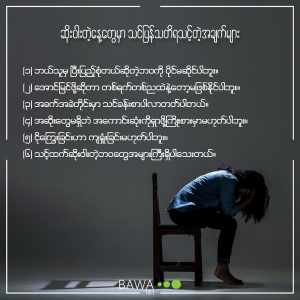How to get your child to follow positive rules.
"When setting rules for a child, parents should say, ``Don't do this, don't do what....'' When the r...
"When setting rules for a child, parents should say, ``Don't do this, don't do what....'' When the rules are set, the child should be aware of whether the rules are being followed or not.
A good ending means the difference between punishment and discipline. Punishment focuses on past mistakes. Discipline is about good behavior in the future. Focusing on good results. Punishment should be fair on the surface. Discipline is teaching the correct response back, which teaches the child to develop better habits. Punishment is more on the bad side and discipline is more on the good side. Punishment is letting go of anger. The rule is expression through love. Regardless of the child's age, be positive and set rules with the child. You should have a warm discussion with the child. Setting rules is a way to express love between parents and children. Let the child know that forgiveness can be discussed. That's why you can't assume that the child has corrected the mistakes just by setting the rules. How does that rule affect the child? Is the child really corrected? How does it make you feel? We need to have a warm discussion with the child. That's why it's a positive rule and you should ask the questions below so that your child can follow it well.
1) What went wrong?
Why does the child not pay attention to everything you say? Why do you do what you are not supposed to do? When asking that question, you need to ask the child in a gentle way. Because of such a kind way of asking, the child will openly express his feelings about the rules. That is the key to knowing why the child broke the rules. "My son was told not to eat candy, why did he eat it? Mom, I'm not fat. I just want to know why. "Tell your mother what you're thinking about" You should ask to find out first without blaming. In that case, if the child did something because of someone else, instead of blaming the other person, you should tell the child to understand. "Yes... U U must have fed her because she didn't know the baby had a bad cough. After that, if my mother tells me that she can't eat candy because she has a bad cough, if someone else feeds her, she will come and ask her. Next time, mom will be angry, If the cough is too bad, I can't take bitter medicine anymore" should be solved. Why is it a rule that you can't eat candy? What happens should be told in advance. Sometimes kids don't want to break the rules, they just don't know what's wrong. That's why rules are set, It should be explained to understand once and for all, because it can cause negative effects.
2) Why did I make a mistake?
The main mistake is sometimes being selfish, angry, It happens because of factors such as disrespect. That's why the parents themselves should behave in a kind way to the child. Teach me to be kind. Teach respect. You should teach yourself to control yourself. Most children do not understand why their behavior is wrong. That's why you should show them why their behavior is wrong. For example. When the child yelled back at the old man, he made sure to meet the child's eyes and hugged the child, saying, "Lean...what kind of talk did you have?" People who are bigger than you Even if you are a young person, you can speak well when you speak. What if the mother yells at the child, will the child like it?'' Asking "Why..." gives the child the opportunity to make real choices.
3) What kind of behavior will you choose next time?
After explaining what you did wrong, you should ask why it was wrong. When asking the second question, you need to learn how to control the causes of error. Finally, the child is asked to think about what he or she would do if he or she encountered such a situation again. A wise parent tries to find out about the child in a question and answer format. Having asked the above questions, the child knows he is wrong. If you know how to correct the mistake, you should ask the child to answer how to solve the problem the next time. Then the child will remember the true behavior. The answer you want, baby When he gave it to me, he said, "Yes, then we will have to face many more problems like that." "I know how to control myself. Remember, I have to do what mommy says," which ended well.
By responding positively to the child's mistake, the child learns to recognize himself when he makes many more similar mistakes. He will boldly open up to his parents and tell him that he is wrong. When he dares to admit his mistake, I will correct him. An opportunity to discipline. When the child learns the truth, he will consider making more mistakes."
A good ending means the difference between punishment and discipline. Punishment focuses on past mistakes. Discipline is about good behavior in the future. Focusing on good results. Punishment should be fair on the surface. Discipline is teaching the correct response back, which teaches the child to develop better habits. Punishment is more on the bad side and discipline is more on the good side. Punishment is letting go of anger. The rule is expression through love. Regardless of the child's age, be positive and set rules with the child. You should have a warm discussion with the child. Setting rules is a way to express love between parents and children. Let the child know that forgiveness can be discussed. That's why you can't assume that the child has corrected the mistakes just by setting the rules. How does that rule affect the child? Is the child really corrected? How does it make you feel? We need to have a warm discussion with the child. That's why it's a positive rule and you should ask the questions below so that your child can follow it well.
1) What went wrong?
Why does the child not pay attention to everything you say? Why do you do what you are not supposed to do? When asking that question, you need to ask the child in a gentle way. Because of such a kind way of asking, the child will openly express his feelings about the rules. That is the key to knowing why the child broke the rules. "My son was told not to eat candy, why did he eat it? Mom, I'm not fat. I just want to know why. "Tell your mother what you're thinking about" You should ask to find out first without blaming. In that case, if the child did something because of someone else, instead of blaming the other person, you should tell the child to understand. "Yes... U U must have fed her because she didn't know the baby had a bad cough. After that, if my mother tells me that she can't eat candy because she has a bad cough, if someone else feeds her, she will come and ask her. Next time, mom will be angry, If the cough is too bad, I can't take bitter medicine anymore" should be solved. Why is it a rule that you can't eat candy? What happens should be told in advance. Sometimes kids don't want to break the rules, they just don't know what's wrong. That's why rules are set, It should be explained to understand once and for all, because it can cause negative effects.
2) Why did I make a mistake?
The main mistake is sometimes being selfish, angry, It happens because of factors such as disrespect. That's why the parents themselves should behave in a kind way to the child. Teach me to be kind. Teach respect. You should teach yourself to control yourself. Most children do not understand why their behavior is wrong. That's why you should show them why their behavior is wrong. For example. When the child yelled back at the old man, he made sure to meet the child's eyes and hugged the child, saying, "Lean...what kind of talk did you have?" People who are bigger than you Even if you are a young person, you can speak well when you speak. What if the mother yells at the child, will the child like it?'' Asking "Why..." gives the child the opportunity to make real choices.
3) What kind of behavior will you choose next time?
After explaining what you did wrong, you should ask why it was wrong. When asking the second question, you need to learn how to control the causes of error. Finally, the child is asked to think about what he or she would do if he or she encountered such a situation again. A wise parent tries to find out about the child in a question and answer format. Having asked the above questions, the child knows he is wrong. If you know how to correct the mistake, you should ask the child to answer how to solve the problem the next time. Then the child will remember the true behavior. The answer you want, baby When he gave it to me, he said, "Yes, then we will have to face many more problems like that." "I know how to control myself. Remember, I have to do what mommy says," which ended well.
By responding positively to the child's mistake, the child learns to recognize himself when he makes many more similar mistakes. He will boldly open up to his parents and tell him that he is wrong. When he dares to admit his mistake, I will correct him. An opportunity to discipline. When the child learns the truth, he will consider making more mistakes."





